A year after he started as managing director of CC Containers, David Muir was tasked with the most challenging job of his career – cleaning up fraud
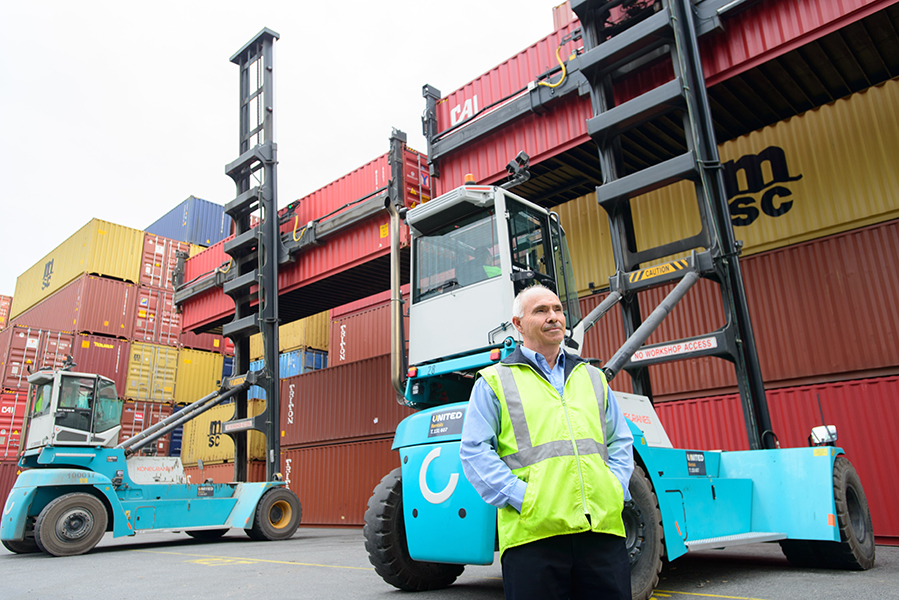 |
|
CCC managing director David Muir
|
The managing director position within CC Containers (CCC) looked pretty enticing to Muir, who at the time worked as Victorian Government’s transport, logistics and supply chain senior industry advisor for four years. It was a chance for him to get back to the core of transport and logistics – something he had been doing for nearly 30 years. Little did he know that CCC would be at the centre of box-handling fraud.
Muir, who was still warming up his seat, saw former directors and employees found guilty of engaging in a variety of frauds and deceitful conduct by a judge of the Supreme Court of Victoria in a civil trial. Father and son team Kain and Kevin Chong, both directors, were responsible for all operations throughout Australia and New Zealand when they, together with the company’s operations manager Christopher Neal and employee Desmond Lee, were found guilty of conducting fraud.
The scam was unmasked when one of their customers, APL, complained in early 2010 that it had been falsely charged for movements of shipping containers. This led to an investigation by the Australian arm of international box carrier Mediterranean Shipping Company (MSCA) and CCC.
MSCA began operating in Australia in 1989 using the services of CCC Old to repair, maintain and store empty shipping containers in Melbourne, which was controlled by the Chongs. In 2007, as part of its global strategy to control costs, MSC looked at acquiring container depots around the world, including in Australia. As part of that strategy, MSCA acquired interest in the business conducted by CCC Old in 2008, with a new company established to purchase and operate the business, now known as CCC.
MSCA held 75 per cent of the shares in CCC with the rest held by the Chongs. MSCA acquired the remaining 25 per cent of interest in CCC in 2009, with Kevin and Chong continuing to work in the business until mid-2010. The five different alleged frauds were repair fraud, container movement fraud, transport fraud, diesel fraud and container sale fraud.
The shipping container business was operated out of Altona, Melbourne, at the time of its purchase by CCC. A year later it moved to its current address in Port of Melbourne. Empty containers are sent to the CCC container depot where they’re surveyed for maintenance and repair before being stored at the depot until they are needed. MSC and MSCA were the main targets of repair fraud as MSCA was Chongs’ largest customer.
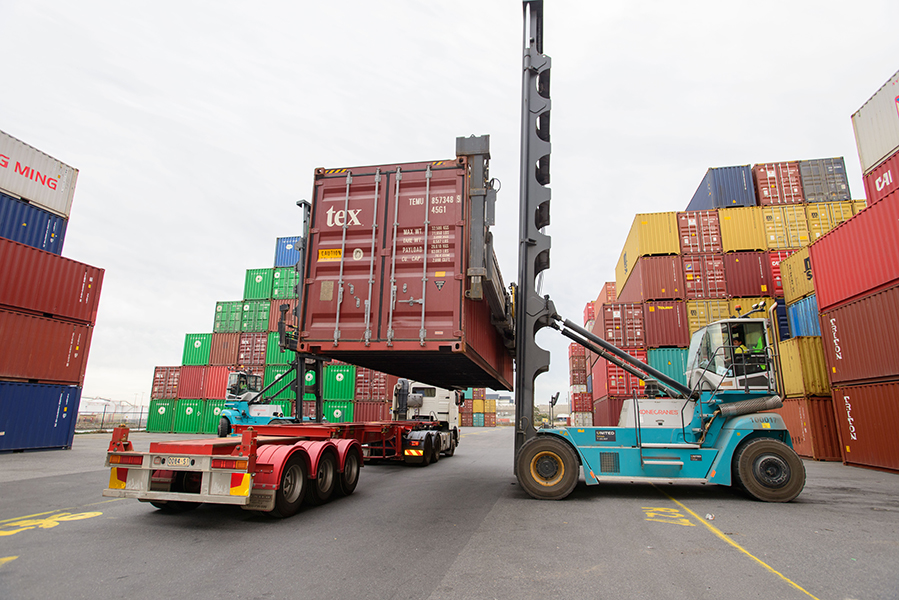 |
|
CCC offers transport services for full and empty containers
|
Messy business
Muir was brought in to fix up a business he thought should have been in a good condition.
“I knew I had a challenge when I started; I started in May but the fraud wasn’t uncovered until November, there was a difficult period from November through to early 2011 with some dark days but we came through them,” Muir says.
He was unaware of the scam when he accepted the position, saying he’s “developed some skillsets” he never had before joining CCC.
“I had never come across corporate fraud to that level but everything else I pretty much knew and that’s why they recruited me here – because I had the knowledge to stabilise the business and grow it,” Muir adds. “No one was aware of what was happening but the business knew – MSC knew it should have been performing better and based on its experience of depots all around the world it had its own KPIs and measures that would suggest it was underperforming.
“What it didn’t realise was who was causing the inefficiencies and cost issues within the business; it came as a complete surprise to everyone when it was discovered. It was an embarrassment to the business and to a lot of our customers that were impacted in such a way.”
MSC managing director Kevin Clarke and Muir took it upon themselves to inform their customers of the fraudulent activity, saying many were thankful for their honest approach.
“At a time when the fraud was unfolding you couldn’t dilly dally, these were difficult times with legal issues flying around the place, it had serious outcomes linked to them,” Muir says. “It’d be an understatement that I was carrying a heavy load on my shoulders at the time – it was a difficult time.
“It was quite stressful and I had some nasty stuff delivered at me as stuff was unfolding but you push through with the confidence that what you’re doing is right with the support of good company behind you and a good legal team.”
Having held some senior positions in the country’s leading transport and logistics companies, including his involvement in working groups such as the Victorian Freight and Logistics Council (VFLC), the Council of Australian Governments (COAG) and the Transport and Logistics Industry Round Table, Muir reached fellow stakeholders for support.
“There were a couple of people I needed at certain times; you have to take a moment and sit down with people and talk things through and get some advice on different strategies to apply and, if not, just to bounce ideas off people because it was a very difficult time,” he says. “Without boasting, I came to the business with a good reputation, fairly known in the industry, so we were able to get through it.”
As those at the centre of fraud started leaving, Muir then employed new people to help strengthen the business. Jason Connor was employed as operations manager, and Angelina Crozier as financial controller, who is now CCC’s chief financial officer. They were both brought in from MSCA.
“No one had any idea what was happening within the business, when it was discovered it took a big impact in terms of the number of employees that were dismissed and those who stayed,” Muir says. “Most people in this industry were aware that something had happened in the business but we lost no customers – as a matter of fact, we picked up a customer.
“Business has settled into a nice rhythm now; we have brought new, younger people in so the business has recruited well and is progressing well.”
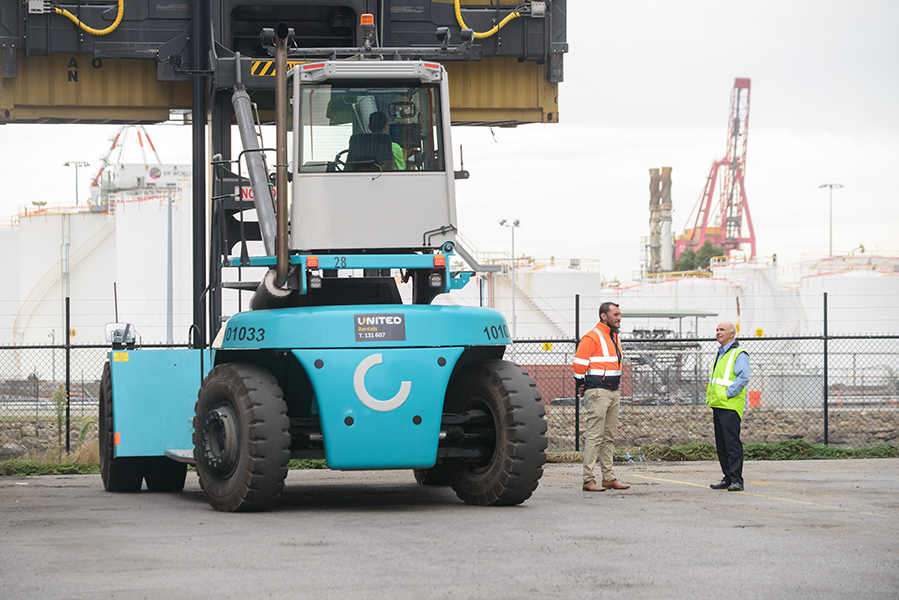 |
|
CCC managed to keep all of its customers in the midst of a fraud storm
|
Resetting moral compass
As many employees were aware of fraudulent activity within the business, some turned a blind eye to it, Muir explains.
“When I came here I sent a message that people had to reset their moral compass; I did things differently,” he says. “I came out of big corporates and government and that type of behaviour just isn’t acceptable.
“Changing the culture was not difficult because a lot of them knew that what they were doing was wrong and they were more than happy to have some decent ethical standings come back into the business,” he says. “A few people left because they felt a little bit, if not guilty, then silly for going along with what was happening for so long and they felt a little bit embarrassed.
“Unfortunately when a few people do that at one time it leaves a big operational gap within the business so we had to do a bit of catch-up for a while; we recruited very hard and shuffled some people around.”
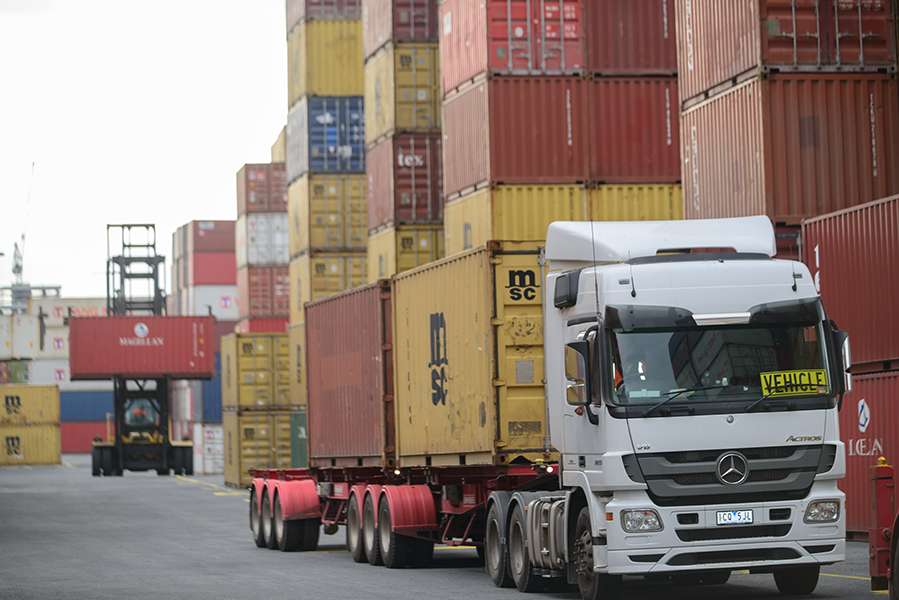 |
|
The business specialises in empty container bulk runs to and from the wharf on a 24/7 basis
|
Operations
CCC handles up to 100,000 containers each year and employs subcontractors to deliver empty containers. It prefers to lease its assets, such as forklifts, as it’s easier to keep up with new technology through leased machinery, Muir explains.
“CCC might not own its own truck fleet, but we look to use subcontractors who have trucks better suited to moving empty containers, so small single-axle prime movers with single-axle 40-foot skel trailers are the predominate truck type used by most empty container park operators, although we are starting to see some investments by down-sized super B-double style combinations to cart 2 x 40-foot containers at a time,” Muir says.
“Private businesses like to own their own assets but it puts stress in the balance sheet. We don’t own any. That’s one of the roles I’ve done, I’ve transitioned the business from owning its own equipment to moving to fully maintained operating leases.
“In business like ours, we wear equipment out. After seven years the equipment is pretty fatigued and to get a second life out if it, it needs a big investment in the machine and by then the technology has moved on anyway.
“So, from our perspective it’s smarter to just keep bringing in new machines and keep up with all the technological advances. The drivers like driving new, modern machinery; it’s certainly more robust and more fuel efficient and it’s self-diagnosing if there’s any problems with it.”
CCC upgrades its forklifts every five to eight years. The company had six B-double trucks upon Muir’s employment, which he found to be inappropriate for the empty container work.
“There were aspirations to move into other type of wharf-related transport work which didn’t necessarily fit the business model we had here so I convinced MSC to sell them all and go with subcontractors,” Muir says. “We have got enough volume to bring in our own trucks but that brings another level of complexity to the business that includes managing truck drivers and parking equipment up in the depot – but for what benefit? Not a great deal. We try and keep the business as simple as possible and we’ll just stick with the simple business model.”
CCC also has its own on-site reefer mechanics with fully equipped workshops. The business offers transport services for full and empty containers, specialising in empty container bulk runs to and from the wharf on a 24/7 basis. Currently servicing major shipping lines, it tailors packages to suit specific business needs.
“The business is pretty simple; it’s just an empty box in, we fix it and we send an empty box out. There’s nothing overly complex about the business, it’s just repetition and moving boxes through as quickly as possible,” Muir says. “Shipping lines want to get their boxes out as quickly as they can, that’s their asset, they work on asset returns and they don’t like their boxes being delayed through empty container depots.”
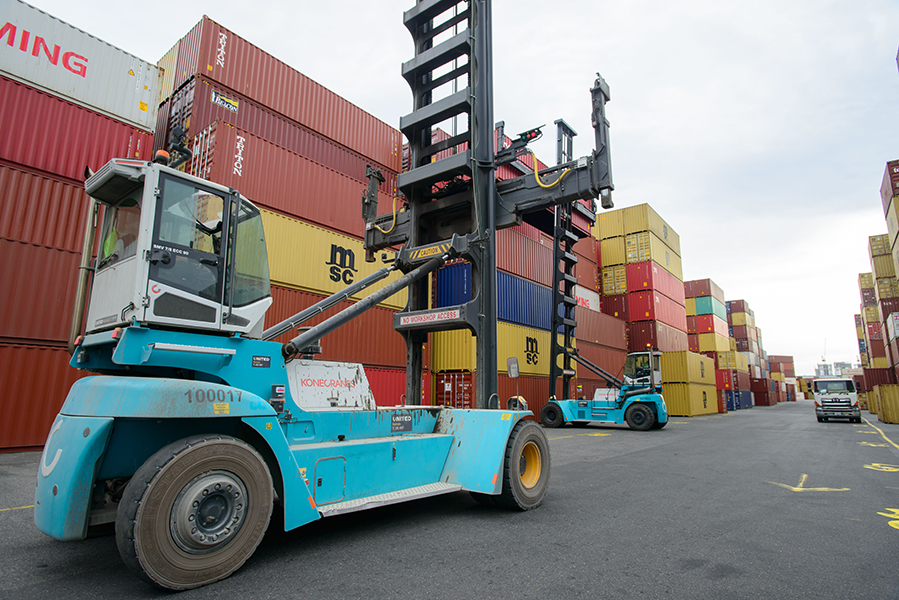 |
|
The company prefers to lease forklifts, and upgrades them every five to eight years
|
Future plans
Despite business being less exciting nowadays with container movement fraud days long gone, Muir says he has no plans on leaving the company.
“It’s a very interesting business, very different from the other corporates I’ve worked for and it’s still privately owned,” he says. “It’s a very flat structure and I don’t have many levels above me. I report to the director of operations for landside logistics for the world and he reports to the owner.
“So it makes them very responsive. If you want to get something done you just ask and they’ll say yes or no, there’s no lengthy corporate process you have to go through, you just have to deal with the time delay.
“Because you haven’t got the multi layers above you, you’re not necessarily teaching and educating everyone above you why you want something which could be half the battle when you’re making a request that has to go up through corporate hierarchy that’s got many steps.
“When you’re dealing with someone who’s responsible for logistics around the world, he’s generally got a good idea of what’s going on everywhere.”


